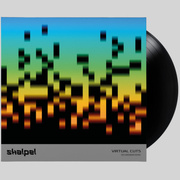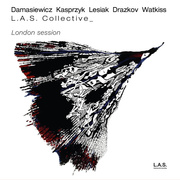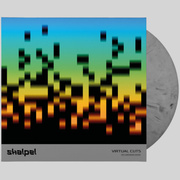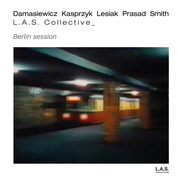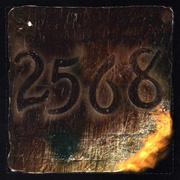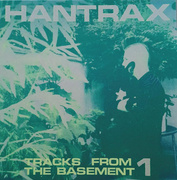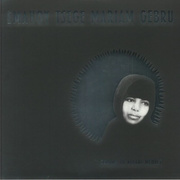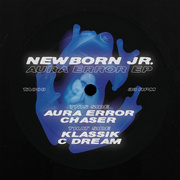- PLAY ALL / Super Grupa Bez Fałszywej Skromności - 01 Introduction.mp3 (The Book Of Job (Gatefold) 180g) / Super Grupa Bez Fałszywej Skromności - 02 Satan's Concept.mp3 (The Book Of Job (Gatefold) 180g) / Super Grupa Bez Fałszywej Skromności - 03 Litany.mp3 (The Book Of Job (Gatefold) 180g) / Super Grupa Bez Fałszywej Skromności - 04 When A Man Dies.mp3 (The Book Of Job (Gatefold) 180g) / Super Grupa Bez Fałszywej Skromności - 05 Accusation.mp3 (The Book Of Job (Gatefold) 180g) / Super Grupa Bez Fałszywej Skromności - 06 Litany II.mp3 (The Book Of Job (Gatefold) 180g) / Super Grupa Bez Fałszywej Skromności - 08 Hope.mp3 (The Book Of Job (Gatefold) 180g) / Super Grupa Bez Fałszywej Skromności - 08 Litany III.mp3 (The Book Of Job (Gatefold) 180g) / Super Grupa Bez Fałszywej Skromności - 09 Final.mp3 (The Book Of Job (Gatefold) 180g)
- 01 Introduction.mp3 / Super Grupa Bez Fałszywej Skromności - 01 Introduction.mp3 (The Book Of Job (Gatefold) 180g)
- 02 Satan's Concept.mp3 / Super Grupa Bez Fałszywej Skromności - 02 Satan's Concept.mp3 (The Book Of Job (Gatefold) 180g)
- 03 Litany.mp3 / Super Grupa Bez Fałszywej Skromności - 03 Litany.mp3 (The Book Of Job (Gatefold) 180g)
- 04 When A Man Dies.mp3 / Super Grupa Bez Fałszywej Skromności - 04 When A Man Dies.mp3 (The Book Of Job (Gatefold) 180g)
- 05 Accusation.mp3 / Super Grupa Bez Fałszywej Skromności - 05 Accusation.mp3 (The Book Of Job (Gatefold) 180g)
- 06 Litany II.mp3 / Super Grupa Bez Fałszywej Skromności - 06 Litany II.mp3 (The Book Of Job (Gatefold) 180g)
- 08 Hope.mp3 / Super Grupa Bez Fałszywej Skromności - 08 Hope.mp3 (The Book Of Job (Gatefold) 180g)
- 08 Litany III.mp3 / Super Grupa Bez Fałszywej Skromności - 08 Litany III.mp3 (The Book Of Job (Gatefold) 180g)
- 09 Final.mp3 / Super Grupa Bez Fałszywej Skromności - 09 Final.mp3 (The Book Of Job (Gatefold) 180g)
POLISH AVANT-GARDE TREASURE, Recorded in 1985
For the lost tribes of the Land of Uz, the Book of Job stands as a sacred chronicle, present across the spiritual architectures of the world: inscribed in the Old Testament of the Christian Bible, echoed through the An-Nisa chapter of the Qur’an and nestled within the Ketuvim of the Hebrew Bible. It is an allegory of the human condition, a philosophical inquisition into the presence of evil and the durability of faith. A universal axis where all beliefs spiral into one, the Book of Job embodies the indomitable allegiance of living beings tested by unseen hands. At its core lays the tale of a merchant, blessed in abundance and then stripped bare by the devil’s wager, a crucible to measure the depths of obedience to the divine.
More than two millennia later, this parable re-emerges in an unexpected setting behind the iron lungs of a crumbling state: the People's Republic of Poland. Under surveillance skies and frostbitten curfews, cut off from the world and entrapped in a regime painted crimson-red by a counterfeit Beelzebub trading a golden hammer and sickle for battered trumpets and edgy drumsticks. In this fractured land, beneath the totalitarian black ice, the Catholic Church paradoxically became a sanctuary of resistance supporting the disciples of dissonance, the rebels of noise, marking the blueprint of one of the most avant-garde scene of the century.
Out of this tension, surfaced a work of rare potency. At the height of the Solidarność movement led by Lech Wałęsa, where trade unionists faced off against socialist police in the streets and as the threat of martial law loomed, the Book of Job was reinterpreted by a consortium of sound innovators, as a symbol of collective distress. Some of Poland’s most revered jazz artists and boundary-pushing thinkers united for a singular performance at the 1981 Jazz Jamboree. But weeks later, the Martial Law of December 13 descended. Stages fell silent. Art was replaced by parades of heavy artillery snaking through snow-blanketed avenues. By 1983, the regime’s grip weakened, hope seeped through the cracks, and by 1989, the socialist edifice collapsed entirely.
In spring 1985, the Book of Job was granted a second life, this time as a studio recording. A multilingual incarnation melding Polish, German, Hebrew and English was captured in the depths of Kraków’s STU Theatre, temporarily transformed into a high-fidelity studio. But fate played its old trick again. Despite attempts to release the recording, the project fell dormant. Cursed. The master tapes, like relics of a vanished ritual, were shelved and forgotten in basements swollen with dust, waiting for the right planetary alignment to happen.
In the long shadow of silence, whispers endured. In 2007, these murmurs resurfaced, reanimated by Galeria 2b in a CD-book hybrid that drifted through Poland like a secret manuscript, keeping the release under the radar, almost buried in the subterranean gloom. Years later, during a period of obsessive research into the lost frequencies of Poland, the Book Of Job appeared again - a blackout in the otherwise luminous history of the avant-garde.
In the thick of a Warsaw winter, one of its collaborators emerged from the charcoal-filled haze: Milo Kurtis, a living conduit of mysticism, born in 1951. Known for his work with cult new wave band Maanam, jazz-fusion supergroup Ossian and obscure sessions with spiritual jazz icon Don Cherry, Milo unfolded stories like scrolls: metaphysical rants on global politics, peyote visions in California, his multi-faith altar fusing Buddhism, Christianity, Islam and Judaism, his ocarina gifted by Don Cherry, … and many more. It felt like evidence that the story needed to be told again after 40 years of its initial recording with its first-ever vinyl pressing, completing the record collection of Polish jazz heads.
Whispered into existence through the deep-rooted breath of Krzysztof Zgraja’s flutes, space-delayed and lacquered in smoke, ‘Ksiega Hioba’ opens like a séance. A chorus of phantom transmissions emerges, tangled in corrupted frequencies, leading us toward the solemn Hebrew invocations of Juliusz Berger, haunting the air with iron-laced lamentations. Gongs and steel instruments conducted by Milo Kurtis start to erupt on ‘Satan’s Concept’, as Andrzej Przybielski’s trumpet sets the tone, clearing space for the stern German recitations of ‘Ashes and Diamonds’ icon Ignacy Machowski.
‘Litany I’ advances with heavy-psych jazz ruptures from Janusz Trzciński, lifted into orbit by the subterranean tremors of Zbigniew Wegehaupt’s bass and Mieczysław Litwiński’s esoteric sitar mantras, all blended in a polyphony of multi-linguistic engineering operated by the invisible hands of Jacek Mastykarz, showcasing the voices from Adam Baruch, Juliusz Berger, Ignacy Machowski, Jerzy Radziwiłowicz (one of the main characters in the movie ‘Man Of Iron’ from Andrzej Wajda) and Corpus Christi’s infamous priest Zdzisław Wardejn.
Brutalist cathedrals rise in ‘When A Man Dies’, where Alma Art’s founder Andrzej Mitan chants a gospel of silence. On ‘Accusation’, Wegehaupt’s solo becomes a bass sermon from obsidian depths, dissolving into fevered jazz-rock disobedience in ‘Litany II’. Psych-funk mutations and smoked-out trombitas spiral outward, pierced by Przybielski’s restless trumpet and Mitan’s tripped-out vocals, shifting through breath and dissolution.
‘Hope’ arrives as a shape-shifting hallucination, Litwiński’s sitar blooms like a desert flower through the blizzard, hinting at a future unbound by flags or fences. ‘Litany III’ spirals into ecstatic ceremony, a delirium of lethal grooves where the Polish avant-garde collapses in a soft-edged chaos. At last, Berger returns to seal the voyage, his voice etched in dusk like a fading incantation, as Zgraja’s post-folk flute hovers beside him, echoing like a last prayer blown across the ruins.
Think Alice Coltrane meditating on the shores of the Vistula, Okay Temiz exiled and dub-mixing Bruton Library breaks with Soviet concrete mysticism, Holger Czukay conjuring a fourth world through a snowstorm of anarchy or Minoru Muraoka whispering doomed illusions through a birchwood flute - 'Księga Hioba' folds all these visions into one. It’s an artefact of resistance, a devotional jazz requiem for the end of times.
All songs written by Super Grupa Bez Fałszywej Skromności
Ignacy Machowski, Adam Baruch, Zdzisław Wardejn, Jerzy Radziwiłowicz and Juliusz Berger: Narrators
Krzysztof Zgraja: Flute, Fortepiano
Andrzej Mitan: Vocals
Andrzej Przybielski: Trumpet
Milo Kurtis: Percussion, Jew's Harp, Trombita
Zbigniew Wegehaupt: Double Bass, Bass Guitar
Janusz Trzciński: Drums
Mieczysław Litwiński: Sitar
Jacek Mastykarz: Mixing Engineer
Tadeusz Sudnik: Mastering Engineer
Ruud Lekx: Remastering Engineer
Recorded at Teatr Stu Krakow
Liner Notes: Mathias Chaboteaux
Polish Translation: Paweł Łapiński
Artwork & Design by Wojtek Gawronski
Executive Producer: Mathias Chaboteaux ℗© 2025 Huveshta Rituals Records. All rights reserved. HR004




